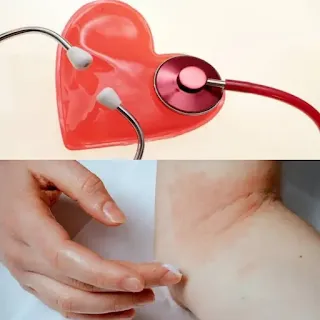Many people rely on herbs and medicinal plants to strengthen immunity and improve general health, but some of these plants may be harmful to those suffering from heart problems.
Ginseng:
This plant grows in North America, northeastern China, and eastern Siberia, and its roots are used as an effective substance to increase physical and mental energy, and it is sometimes used as a stimulant in cases of fatigue and exhaustion, but some studies indicate that this plant may be harmful to those who suffer from problems in the regular functioning of the heart or problems. Hypertension.
Green tea:
Green tea infusion is considered one of the most popular drinks around the world, and many studies indicate that it stimulates blood circulation and acts as a beneficial antioxidant for the body, but green tea contains amounts of caffeine, too much of which causes problems with high blood pressure.
Marjoram:
Marjoram or marjoram is a perennial herbaceous plant found widely in the Mediterranean regions. It is widely used in alternative medicine, and its leaves are used fresh or dried to improve the flavor of food. Despite the popularity of this plant, there are warnings against using it. They do not suffer from problems with blood clotting, especially after Surgical operations, as there are substances in this plant that act as a blood thinner.
Nettle:
Nettle extracts are often used to treat muscle and joint pain problems, but these substances may have serious interactions with some anticoagulant medications.
Swallow grass:
The swallow herb, or Chelidonium, is spread in many countries of the world, and it has many medical uses in treating convulsions, gallstones, and diseases of the digestive system, but its use must be under the supervision of a doctor, as it may pose a danger to some who suffer from coronary heart disease and high blood pressure.
A doctor reveals the factors that trigger psoriasis
Dr. Ludmila Makhovaya, an immunologist and allergist, revealed the factors that trigger psoriasis: the disease that usually strikes at the age of 16-22 years, and at the age of 57-60 years.
The doctor said in an interview with the newspaper “Izvestia”: “Psoriasis is a systemic disease with multiple factors, the most important of which are genetic predisposition, immune disorders, metabolism, and diet. The main manifestations of the disease are skin changes, the appearance of a skin rash caused by poor cell keratinization, inflammation, and excessive formation of small vessels in the skin. It is difficult Recognizing psoriasis, because psoriatic rashes are inflammatory spots on the skin that are pink in color with clear borders, slightly raised above the surface of the skin, similar to rashes associated with allergic dermatitis, eczema, microbes, fungal skin lesions, seborrheic dermatitis and other skin diseases.
According to her, psoriasis usually begins with a single pink or red papule. As a rule, it is covered by a large number of loose silvery-white scales. The main diagnostic sign of the disease is the psoriatic triad on the skin, also known as the phenomenon of styrene spot, when blisters form on the surface of papules, which easily fall off, under them - a bright red surface. Microbleeding may occur when the crusts are scraped off.
She points out that the main cause of psoriasis has not been determined, but there are different theories, the most important of which are viral and genetic. The viral theory is supported by the results of studies indicating the presence of "primary bodies", that is, so-called "psoriasis viruses" in the skin cells of psoriasis patients, but in cases of close contact between people, one person is often sick, and the rest are healthy.
According to the genetic theory, hereditary psoriasis occurs in about 20 percent of cases. But it is not the disease itself that is inherited, but rather the genetic predisposition to its development. Concomitant diseases can play a negative role in the development of psoriasis: gastric or duodenal ulcers, viral hepatitis, endocrine diseases (metabolic disorders), inflammatory diseases of connective tissue.
The doctor points out that the presence of several diseases in a person at the same time can lead to repeated exacerbations of psoriasis and difficulties in choosing treatment. External factors can affect negatively, such as: stress, hypothermia and, as a result, colds, harsh environmental conditions, alcohol consumption, smoking, and passive smoking.
She says: “To prevent psoriasis, it is recommended to follow a healthy lifestyle as much as possible, reduce exposure to stress factors, and prevent infectious and chronic diseases and treat them immediately. It is recommended to limit the intake of foods rich in spices, spices, alcoholic beverages, and animal fats. Use vegetable oils in the diet, and eat foods rich in spices, alcohol, and animal fats. "Rich in vitamins and fiber (fruits, vegetables). When a rash appears, it is necessary to consult a dermatologist in a timely manner, who, after examination, will prescribe the necessary tests and effective treatment."
Tags:
benefits and harms
green tea
health
heart patients
herbs benefits
marjoram
nettle
plants benefits
strengthen immunity
swallow grass
trigger psoriasis




